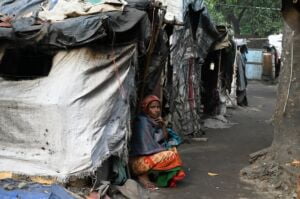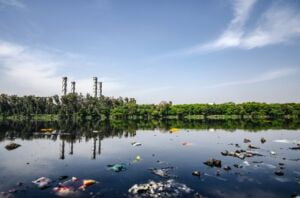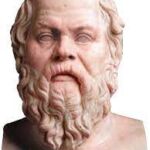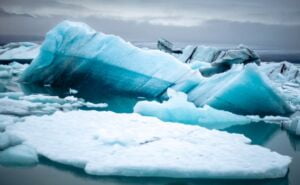 Abstract
Abstract
“As you sow, so shall you reap”
This is a plea to all regression therapist colleagues to contribute to a deeper and better understanding of our relationship with the environment in terms of reincarnation. According to all the incoming scientific data, it is more than evident that human activities have a deep impact on Mother Earth. Our species, Homo Sapiens, is pushing the planet to its limits. What we do today has a direct and probably irreversible effect on the fate of the planet. We are poisoning the habitat of the coming generations. However, what most of us have never thought about is that it is we who will harvest the problems that we plant today. It will be us in different bodies, our future incarnations, who will reap the subsequent disasters in the future. Our descendants will be none other than us.
The most vital contribution we can make to our fellow humans is to undertake the task of sharing our findings with them. Almost one hundred years after the publication in 1911 of the findings of Colonel Albert de Rochas, the “great grandfather” of regression therapy, we should come up with a compilation of our recent insights. We could even address this topic at the next World Congress. Thus, we could clearly demonstrate to skeptical scientists that the cycles of life were always present and that our actions have always had an effect on us, our environment, and our future. It is our duty to make our fellow humans realize that everything is interrelated and interconnected. Any action taken today has a direct impact on us first, prior to affecting others around us, or in the future.
Introduction
 Humankind has not woven the web of life.
Humankind has not woven the web of life.
We are but one thread within it.
Whatever we do to the web, we do to ourselves.
All things are bound together.
All things connect.
Chief Seattle 1854
If the Chief has not expressed all in that caveat, then I do not know who can. We live in a remote and tiny little part of a distant galaxy somewhere at the edges of space and time in our cosmos. Our galaxy is but a tiny grain of sand in a huge beach of 100 billion galaxies. And our solar system is a minute system among the other 100 billion solar systems within that galaxy. Our home planet is but a tiny dot within that solar system. Furthermore, if the biosphere, which is the habitat within which life of all known creatures can manifest itself here on Earth, had the thickness of a page in a book, then that book must have been a massive one; consisting of fifteen hundred pages.
 In terms of time, if our cosmos came into being on the first day of January of a hypothetical year at exactly 00.00 hours, then we as human species appeared at 23.56 on 31st December and Columbus discovered America in the very last second of this year. I hope that it is clear by now that it should not be that difficult to imagine that an average human lifetime is all the more tiny. Finally, we are coming to a point where we pretend that we know where we are, how we came about, and how things around us operate. Within this context, a fallacy (among many others) that many of us have is that we think that we come here on Earth only once. Some of us think that it is “unfortunate that things are going so awful for the planet;” “how unworthy for the poor generations to come;” “we are not going to be there to see the disaster.” And there our guilty feelings for our actions are put aside. We return to business as usual pretending that nothing is happening. We act as if all this is taking place elsewhere, as if it has no affect whatsoever on our environment. What a short-sighted and narrow-minded approach to view life.
In terms of time, if our cosmos came into being on the first day of January of a hypothetical year at exactly 00.00 hours, then we as human species appeared at 23.56 on 31st December and Columbus discovered America in the very last second of this year. I hope that it is clear by now that it should not be that difficult to imagine that an average human lifetime is all the more tiny. Finally, we are coming to a point where we pretend that we know where we are, how we came about, and how things around us operate. Within this context, a fallacy (among many others) that many of us have is that we think that we come here on Earth only once. Some of us think that it is “unfortunate that things are going so awful for the planet;” “how unworthy for the poor generations to come;” “we are not going to be there to see the disaster.” And there our guilty feelings for our actions are put aside. We return to business as usual pretending that nothing is happening. We act as if all this is taking place elsewhere, as if it has no affect whatsoever on our environment. What a short-sighted and narrow-minded approach to view life.
Here is a brief myth from ancient Greece:
Erysichthon was a young and arrogant ruler of Thessaly. He wanted to build an extension to his big palace for his feasts and banquets but he violated a rule set by the gods. He set off with his slaves to the sacred forest of Dotion dedicated to goddess Demeter. No one was allowed to cut those trees because they were sacred. So when he gave the order to his slaves to proceed, the goddess transformed herself into an old lady and warned him of the hazards involved in violating the rules, advising him to go elsewhere for his wood. He neglected her advice and had his slaves cut down trees from the forest. Then the protector of seeds, land, and cultivation, the goddess of agriculture revealed her true nature. The workers fled in terror. She then exclaimed “go on with building your chambers, you will be spending a long time in there.” She then cursed him to devour everything around him as he devoured her forest. Nothing on Earth would be able to satisfy his hunger or thirst. So that is exactly what happened. He first ate up all his goods, all the flocks of his pasture-sheep, goats, cows, horses; even dogs and cats. Then, when his hunger was not satiated, he started devouring even his own flesh…
It is not difficult for any of us to guess what happened next. Is this just a myth or is it the horrible reality we live in? Are we not, as a human race, following the same track today? Are we not eating our own flesh?
Let us take just a glimpse at the facts.
Ecology versus Economy
But we, who are free children of sun and light, want to be true to the Great Spirit
and not burden our hearts with stones.
Only lost ailing beings, who no longer touch God’s hand, can live happily between
stone gaps without sun, light, and wind.
Let us leave the Papalagi[1] with his dubious happiness, but let us destroy any attempt
to place stone boxes on our sun-filled shores
and to kill the joy of life with stone, gaps, dirt, noise, smoke, and ash, as is his goal.
Chief Tuiavii 1910
Take a look around you. Things are not what they used to be. Industrial revolution, along with the population explosion and the rise of capitalism, brought a profound and structural change on our environment by altering the conditions and the rules of the processes of economic life. Our increasing emphasis on materialistic values moved life away from meaning. The constant and ever increasing pursuit of profit for expanding private property and uncontrolled development has brought this planet near its limits.
 People neurotically accumulate layers of wealth as if they will live forever, forgetting that their wealth is somebody else’s poverty. We have one pie to
People neurotically accumulate layers of wealth as if they will live forever, forgetting that their wealth is somebody else’s poverty. We have one pie to eat from and this is not shared equally. The top ten percent of the population control 85 percent of global wealth. The principles of “free” economy brought multinational conglomerates in power and oligopolistic control of the planet’s resources. The rise of the affluent societies came at the expense of the underdeveloped; “golden boys” at the top and exasperated workers gasping for a dollar per day at the bottom.
eat from and this is not shared equally. The top ten percent of the population control 85 percent of global wealth. The principles of “free” economy brought multinational conglomerates in power and oligopolistic control of the planet’s resources. The rise of the affluent societies came at the expense of the underdeveloped; “golden boys” at the top and exasperated workers gasping for a dollar per day at the bottom.
Whole nations were forced to dependent labor and the world economy has created a constantly starving monster called Homo Consumens Universalis,[2] a willing and passive consumer. Capital has no nationality and knows of no boundaries. Cultures with thousands of years of history have been subjugated to the globalization process at the expense of their original cultural identities in favor of homogeneity. Meanwhile, the developed nations behave hypocritically against the underdeveloped countries. They export “dirty” technology; behaving like naughty children, hiding the dirt under the carpet and pretending that nothing is happening. Economy is acting at the expense of ecology. For every calorie that reaches our mouth thirteen calories have been wasted on the way. Is this not a deficit? What economists celebrate, ecologists mourn. The rise of standards of living becomes increasingly rather irrelevant as they keep on rising.
But what is a market economy after all? Is it not the whole process of a production and consumption cycle? Is it not the concept of supply and demand? And is the market working by a magic force or is it the aggregate result of our own actions? Is it not the Gross International Product and are we not responsible for this? We are shareholders of this Global Disaster Corporation Unlimited whether we like it or not. Each and every one of us has at least one share in this vicious corporation.
 We are part of the process of raping mother Earth. Not only do we deplete the resources of the Earth but we also contaminate everything there is with our waste products. We use chemicals to process goods but care less where these chemicals end up. We turn on our electrical devices and ignore that the nuclear industries dump their waste in the oceans. We are indifferent to the effects our air conditioners have on the ozone layer. We have no regard for what damage cars’ emissions are doing to the atmosphere. We really do not care about the greenhouse effect and global warming.
We are part of the process of raping mother Earth. Not only do we deplete the resources of the Earth but we also contaminate everything there is with our waste products. We use chemicals to process goods but care less where these chemicals end up. We turn on our electrical devices and ignore that the nuclear industries dump their waste in the oceans. We are indifferent to the effects our air conditioners have on the ozone layer. We have no regard for what damage cars’ emissions are doing to the atmosphere. We really do not care about the greenhouse effect and global warming.
 Every year millions of acres of land become deserts. Year on year drinking water becomes less drinkable because we pollute it. Virgin forests are being devastated by our insatiable need for wood and paper. Our daily activities suppress biological diversity by exterminating thousands of species per year. We act as if we own this planet and dump the waste in our backyard. The time is not far when our backyard will crash in upon us. Let us pause for a moment and put some things into perspective.
Every year millions of acres of land become deserts. Year on year drinking water becomes less drinkable because we pollute it. Virgin forests are being devastated by our insatiable need for wood and paper. Our daily activities suppress biological diversity by exterminating thousands of species per year. We act as if we own this planet and dump the waste in our backyard. The time is not far when our backyard will crash in upon us. Let us pause for a moment and put some things into perspective.
Every morning we wake up and go to the bathroom. What do we do there? We dispose of all our waste material; this organic material that is not useful to or needed by our organism. Just imagine for a moment how important this process is. Life could not exist without this process. However, almost all of us pretend that this is not happening. We function as if “our shit does not stink.” Who amongst us knows exactly what happens after we flush the toilet? Where does all this waste go day after day? Is it processed? If so, in what way? Is the processing partial, or full? Are we aware of how other cultures solve the particular problem? It seems that economy deals with what we produce and how we consume, while ecology deals with what we process and how we dispose of the waste products.
As I write these lines, there is a deep economic recession underway that some call a crisis. This “crisis” is really a result of exchanging a future income for a blissful living today. Millions of people took a mortgage out on their future labor power for a prosperous today. They saw the cheese, but did not see the trap. What they actually did to themselves was to enslave their future income and labor power to the greedy bankers. It is not the scope or the intention of this article to extensively explore this complex problem. You can find all the relative information and scientific publications of how we persistently destroy our planet by surfing on the internet. But no matter how long you search you will not find anything on how we will all be accountable for all this. Google will not find this for you. That is called responsibility. Things do not just happen. We make them happen. Consciously or not, we constantly make choices. Whether there is intention or not, we are responsible for the outcome; even for the unforeseen byproducts of our economic activities. Our existence here on this planet has been our choice and that leads to the next part of my paper.
Reincarnation[3]
Cebes: I am confident in the belief that there truly is such a thing as living again
and that the living spring from the dead,
and that the souls of the dead are in existence,
and that the good souls have a better portion than the evil.
in Plato’s Phaedo
If there is a unique understanding in our profession which has a political impact upon humanity, then it is certainly the fact that we incarnate constantly. The “soil” upon which we will grow is the same soil we have been cultivating for millenniums. It took humanity only a few decades to bring the planet to a state far from equilibrium. After a review of reincarnation literature and related studies I think we could possibly say that consciousness is not a byproduct of biological and electrochemical processes but on the contrary, mind utilizes the structure offered by the brain to express itself on the restrained condensed world of matter. It is probably the attempt of a Higher Consciousness to accumulate experience at the level of this particular space-time. Through countless embodiments the psyche accumulates experiences and develops an understanding by being constantly exposed to the limits set by space and time.[4] During the bardo state there usually comes a time of assessment and greater understanding of our deeds. It is evident (even though there is a lack of unanimity for this) that thousands of people who have been regressed have offered us a lot of material on which to work. It seems to me that a just representation of the findings of regression therapists in conjunction with other fields of borderline research (and there is plenty of strong evidence to support them) could be summed up in the following manner:
- Consciousness is not a product of biological processes.
- Consciousness cannot be reduced to the brain but retains its coherence and integrity without its biological substrate.
- Some part of human consciousness seems to survive biological death.
- It also seems to retain specific memories from former incarnations.
- It also seems to retain traumatic material that was not assimilated or released during the bardo stage.
- The brain acts as an instrument of the mind, allowing it to unfold. In effect the brain limits consciousness.
- “There must be a domain other than space-time in which we exist in an organized fashion between death and birth. Hence the cosmos is multidimensional and populated by more types of beings than we previously imagined.” [5]
The list is probably incomplete and will probably become larger as new findings are revealed. It sticks to the very basics and does not take into account religious ideas and/or occult dogmas that have prevailed throughout history. My desire is to adhere to a scientific approach as far as this may be feasible in any field that deals with consciousness; an immeasurable value. Sticking to facts and experiences without formulating a dogma is probably a better approach and is open to reevaluation and revision.
But what are the repercussions of these basic premises?
First, they show us that the basic assumptions of our current scientific paradigm are deeply challenged. The dominant materialistic and monistic worldview must be revised if it is to take into account our findings. We cannot go on in our understanding of life processes if we do not radically revise our paradigm.
Second, traditional and fundamentalist Hebrew, Christian, and Muslim (with some exceptions) dogma must be radically revised to incorporate our findings instead of seeing Satan behind all that we have discovered. On the other hand religions, such as Buddhism and Hinduism that accept the reality of reincarnation, have some ideas about it that do not coincide with our findings. They also need to revise their dogmas.
A reader of this article would by now start wondering at and questioning my assertions. Are billions of believers and millions of scientists so fundamentally wrong and deluded? Are the findings of a few hundred regression therapists enough to overthrow an established worldview? Is it not arrogance to challenge the prevailing view? It may be so indeed. Historians of the future will be in the position to answer these questions. What I now know is that the majority of humans for thousands of years believed that the sun was revolving around the earth and it was only a handful of people that challenged this dominant belief with the known dangers for their integrity.
Third, if science, most religions, and most spiritual disciplines have failed to depict an accurate picture of what life is, are we as human individuals not affected? What are our values, our beliefs, our expectations? Have we been looking in the wrong direction for so long? If we were to accept that we incarnate again and again, how are we supposed to behave from here on? Are we to be held accountable for what we do? Is there a sort of committee that judges us? Do our actions have an impact on our future incarnations? Is that called karma?
Karma
That which within us is solely valuable,
we carry in our current life from previous spiritual existences.
Empress Elisabeth of Austria
Let us put karma into the discussion. When I use this concept I approach it very cautiously and with great hesitation. It is a word heavily misused by a variety of individuals, from astrologers to priests, and is full of misconceived notions of heavy connotations and disparaging interpretations. In order for karma to exist, there probably has to be a stage of “life between lives.” Then, in some way, there has to be a higher mind or intelligence that collects all this information and processes it. For the law of karma to be valid, there probably must be another sphere or state of existence, other than the one we know and live in.
We are like archaeologists; we examine human footprints on this planet. That is what we have in common but from a different perspective. These imprints, while they manifest themselves many times on the physical plane (birthmarks or birth defects), they also brand the psyche. That is where karma seems to enter the picture. We do not have tabula rasa; we have tabula scripta. And as a book has pages upon pages, we accumulate experiences upon experiences. Some of us know where this book is kept.
In this domain I prefer to put things in the form of questions instead of statements. I feel more comfortable that way since this paper is not presenting findings but is a plea to colleagues to write down their findings.
So, is reincarnation voluntary or imposed on us? Is it my choice to come onto Earth or not? What is decisive? What does it depend on; our intentions or what we actually did? Is there room for morality? What happens to a member of the Ku Klux Klan or to a torturer from Auschwitz? What happens to their victims? What of the caste system in India? Is it a representation of a spiritual distribution or is it a distorted model that “validates” social exploitation? What about capital punishment? Should states impose the death penalty on citizens?
What happens to aborted fetuses? Are we held responsible for this and if so in what way? Are we to be held responsible for our deeds? Is karma a bill of liabilities? Are there any interest rates on it? Do we have a say on the race, nationality, religion, or the country in which we will be born? Do we retain some of the qualities acquired through successive incarnations or do we start from scratch? Do we announce our coming through dreams?
Further, have we incarnated as plants or animals? If so, is this done in an evolving way or not? How about other non-human entities? Do angels exist? Demons? Extraterrestrials? Is it possible to have more than one resident in a body and, if so, how is that feasible?
 Socrates (470-399 BC) based his beliefs on the pre-existence of the soul on the inherent feeling of justice (or injustice) evident in young children. He wondered why a child would feel cheated if he had not had a previous existence and a prior knowledge of what is right or wrong. And why was a young slave with no education able to solve complex mathematical problems and come up with solutions so naturally?
Socrates (470-399 BC) based his beliefs on the pre-existence of the soul on the inherent feeling of justice (or injustice) evident in young children. He wondered why a child would feel cheated if he had not had a previous existence and a prior knowledge of what is right or wrong. And why was a young slave with no education able to solve complex mathematical problems and come up with solutions so naturally?
The previous inhabitants of the land on which I now live, the ancient Greeks, believed that before an individual incarnated, three goddesses were responsible for his fate. They were the three Fates: Clotho (weaver), who weaved life’s destiny, the longer the thread the longer the possibility for that individual to grow old; Lachesis (fortune) who brought in luck, surprise, coincidence, or impediments and hardships; and Atropos (the inevitable), who ultimately decided when to cut life’s thread, many times abruptly and without notice. Does this in some way suggest predestination? No, not entirely. Personal choice was just as important; people had responsibility for their actions and it was they who differentiated the outcome of the choices of gods. If people deviated from the original plan during life then they would have to face Themis, who would enforce order and allocate justice by protecting the weak in particular. If this did not work, then Nemesis (revenge) would enter the picture and punish harshly anyone for disturbing the order (especially nature’s order) and harmony. Nemesis would only be tamed if order was reestablished. After bodily death they would encounter a judging committee who would evaluate their deeds and decide their future destiny in the afterlife.
So, how do we put all this together? Mythology is good enough, but how do we move on from here? I think the answer is simple: we must form a committee with members from all the associations related to our work: IARRT, IBRT, EARTh, and other national associations. Then we study the material that is already in print, either in the form of books or articles published in the Journal of Regression Therapy or other journals. Then we classify the material in general categories under basic questions/topics. For instance, does consciousness survive bodily death? Then we list underneath and quote all the relevant findings and publications. After putting down all the basic questions/topics on the line we conduct a questionnaire, which we then send to all members of the aforementioned associations. We ask the members to answer the “yes or no” questions and submit case studies under each question/topic as well. When all this material is gathered and collected we then edit it to produce a volume (or more) for publication.
It is important for us to substantiate the material presented, to select the strongest cases, and to have good documentation. This is imperative in order for others to take us seriously. We are scornfully looked upon already. We either decide to become serious and get out there in the open and fight for our case or we stick with our stagnant introversion and self-centeredness. We have such a work in print already: the wonderful two-volume book Regression Therapy (Lucas 1993). Let us surpass it.
Conclusion
 Climate scientists came up with a definite warning: either we change the way we produce, distribute, and consume energy in the next ten years or we will be held responsible for the irreversible destruction of life as we know it on this planet. Lay people do not seem to realize that they cannot get away with this behavior.
Climate scientists came up with a definite warning: either we change the way we produce, distribute, and consume energy in the next ten years or we will be held responsible for the irreversible destruction of life as we know it on this planet. Lay people do not seem to realize that they cannot get away with this behavior.
We as regression therapists are participants in a process that most people of this planet are not even aware. We are practicing a profession that changes peoples’ lives. These profound changes come about simply because our clients (and ourselves at the same time) come to a deep realization of the fact that we have been here before. Not only have we incarnated before, but some of the persisting behavioral problems that enfeeble us originate from former incarnations as well.
As we practice daily, we see miracles happening in our offices. Day by day we realize that life’s processes are more than what we have been taught in school. Modern science and traditional religions have been offering us a limited and distorted view of the cosmos. Let us offer them our findings and let us be the ones to break the dam. Let us offer our fellow humans our gift; the fact that we and no one else will be the future generations and that we will harvest the seeds we have planted today.[6] Let us add our findings to the predictions of climate scientists and spread the word that we are responsible for what is happening. Let us not make the same mistake as some of our fellow humans have, of mortgaging our future incarnations for a purportedly “better” today. As Michael Grosso (2004) has so elegantly demonstrated, there is enough evidence to suggest that we are actually shaping and forming the conditions of our afterlife reality.[7] Let us assume responsibility now. Let us change course before it is too late for the planet. Let us become active at the physical, cognitive, and spiritual levels. Let us discover our psyches.
Acknowledgements
The thoughts of my colleagues Hans Ten Dam, Ulrich Kramer, and Jan Erik Sigdell were quite illuminating and fertile for the development of this article. I am grateful for their contribution. I am also grateful to the editing of Janet Cunningham, Louis Siron, and Belinda Tanner.
References
Almeder, R. Death and Personal Survival: The Evidence of Life After Death. Rowman & Littlefield Publishers Inc., 1992.
Αrcangel, D., Schwartz, G. Afterlife Encounters: Ordinary People, Extraordinary Experiences. Charlottesville, VA: Hampton Roads, 2005.
Bauer, D., Max Hoffmeister, Hartmut Georg, Children Who Communicate Before They Are Born. London: Temple Lodge, 2005.
Bowman, C. Children’s Past Lives: How Past Life Memories Affect Your Child. New York: Bantam Books, 1997.
——— Return From Heaven. New York: HarperTorch, 2001.
Clark, R. L. Past Life Therapy: The State of the Art. Austin, TX: Rising Star Press, 1995.
Cockell, J. Across Time and Death. New York: Simon & Schuster, 1993.
Crabtree, A. Multiple Man: Explorations in Possession and Multiple Personality. New York: Prager Publishers, 1985.
Ellison, A. J. Science and the Paranormal: Altered States of Reality. Edinburgh, UK: Floris Books, 2002.
Fontana, D. Is There An Afterlife? O Books, 2005.
Freedman, T. B. Soul Echoes: The Healing Power of Past-Life Therapy. New York: Kensington Publishing Corp., 2002.
Grof, Stanislav. Beyond the Brain: Birth, Death and Transcendence in Psychotherapy. Albany: State University of New York Press, 1985.
——— Psychology of the Future: Lessons From Modern Consciousness Research. Albany: State University of New York Press, 2000.
Grosso, Michael. Experiencing the Next World Now. New York: Paraview Pocket Books, 2004.
Guirdham, A. The Cathars and Reincarnation. New Jersey: Neville Spearman, 1970.
Haraldsson, E. and M. Abbu-Izzedin. Development of certainty about the correct deceased person in a case of the reincarnation type in Lebanon: The case of Nazih Al-Danaf. Journal of Scientific Exploration, 16:363-80, 2002.
Haraldsson, E. and Karl Ossis. At the Hour of Death. New York: Hastings House, 1993.
Head, J. & Sylvia Cranston. Reincarnation: The Phoenix Fire Mystery. New York: Julian Press, 1977.
Holohan, V. & Christine McHugh. A Voice From the Grave: The Unseen Witness in the Jacqui Poole Murder Case. Ireland, Maverick House, 2006.
Inglis, B. Natural and Supernatural. London: Abacus, 1979.
Iverson, J. In Search of the Dead: A Scientific Investigation of Evidence for Life After Death. San Francisco: Harper, 1992.
Jarmon, R. G. Discovering the Soul: The Amazing Findings of a Psychiatrist and His Patients. Virginia Beach, VA: ARE Press, 1997.
Kelly, E. et al. Irreducible Mind: Towards a Psychology of the 21st Century. Lanham, MD: Rowman & Littlefield, 2007.
Kelsey, D. & Joan Grant. Many Lifetimes. New York: Doubleday, 1967.
Klein, E. Soul Search: The Healing Possibilities of Past Lives. Virginia Beach, VA: ARE Press, 1995.
Kubler-Ross, E. On Death and Dying. New York: Macmillan, 1969.
Lenz, F. Lifetimes: True Accounts of Reincarnation. New York: Bobbs-Merrill, 1979.
Llewelyn, K. Flight into the Ages. New South Wales: Felspin, 1991.
Lorimer, D. Thinking Beyond the Brain. Edinburgh, UK: Floris Books, 2001.
Lucas, W. Regression Therapy: A Handbook for Professionals. Crest Park, CA: Deep Forest Press, 1993.
Mayer, E. L. Extraordinary Knowing. New York: Bantam, 2007.
Meek, G. W. After We Die What Then? Columbus, OH: Ariel Press, 1987.
Modi, Shakuntala, M.D. Remarkable Healings: A Psychiatrist Discovers Unsuspected Roots of Mental and Physical Disease. Charlottesville, VA: Hampton Roads, 1997.
Moody, R. Coming Back: A Psychiatrist Explores Past-Life Journeys. New York: Bantam, Doubleday, 1990.
——— Reunions: Visionary Encounters With the Departed Loved Ones. New York: Ivy Books, 1993.
Moss, P. & Joe Keeton. Encounters With the Past: How Man Can Experience and Relieve History. London: Sidgwick & Jackson, 1979.
Muller, K. Reincarnation, Based on Facts. London: Psychic Press, 1970.
Murphy, M. The Future of the Body. Los Angeles, CA: Tarcher Inc., 1992.
Myers, F. W. H. Human Personality And Its Survival of Bodily Death. London: Longmans, Green, 1903.
Netherton, M. & Nancy Shiffrin. Past Life Therapy. New York: Ace Books, 1978.
Oppenheim, G. Who Were You Before You Were You? The casebook of a past-life therapist. New York: Carlton Press, 1990.
Pasricha, S. Cases of the reincarnation type in Northern India with Birthmarks and Birth Defects. Journal of Scientific Exploration. 12:259-293, 1998.
Radin, D. The Conscious Universe: The Scientific Truth of Psychic Phenomena. New York: Harper & Collins, 1997.
Ritchie, G. Return From Tomorrow. Waco, TX: Chosen, 1978.
Rogo, S. The Search For Yesterday. New Jersey: Prentice Hall, 1985.
Schlotterbeck, K. Living Your Past Lives: The Psychology of Past Life Regression. New York: Ballantine Books, 1987.
Shroder, T. Old Souls: The Scientific Evidence For Past Lives. New York: Simon & Schuster, 1999.
Stemman, R. One Soul, Many Lives: First Hand Stories of Reincarnation and the Striking Evidence of Past Lives. Berkeley, CA: Ulysses Press, 2005.
Stevenson, I. Twenty Cases Suggestive of Reincarnation. Charlottesville: University Press of Virginia, 1974.
——— Children Who Remember Previous Lives. Charlottesville, VA: University Press of Virginia, 1987.
——— Where Reincarnation and Biology Intersect. Westport, CT: Praeger, 1997.
——— The contribution of apparitions to the evidence for survival. Journal of the American Society For Psychical Research. 76:341-358. 1982.
Tarazi, L. Under the Inquisition: An Experience Relived. Charlottesville, VA: Hampton Roads, 1997.
Tart, C. Altered States of Consciousness. New York: Wiley, 1969.
Ten Dam, H. Exploring Reincarnation. London: Rider Books, 2003.
Tick, E. The Practice of Dream Healing: Bringing Ancient Greek Mysteries into Modern Medicine. Illinois: Quest Books, 2001.
Tucker, J. Life Before Life: A Scientific Investigation of Children’s Memories of Previous Lives. New York: St. Martin’s Press, 2005.
——— A scale to measure the strength of children’s claims of previous lives. Journal of Scientific Exploration. 14:571-581, 2000.
Van Dusen, W. The Presence of Other Worlds. New York: Swedenborg Foundation, 1974.
Wambach, H. Reliving Past Lives. New York: Harper & Row, 1978.
——— Life Before Life. New York: Wm. Morrow, 1979.
Weiss, B. Many Lives, Many Masters. New York: Simon & Schuster, 1988.
——— Through Time Into Healing. New York: Simon & Schuster, 1992.
——— Only Love is Real: A Story of Soulmates Reunited. New York: Warner Books, 1997.
Whitton, J. and Joe Fisher. Life Between Life. New York: Doubleday, 1994.
Williston, G., and Judith Johnstone. Discovering Your Past Lives. Northampton, England: Thorsons Publishing Group, 1983.
Woolger, Roger. Other Lives Other Selves. New York: Doubleday, 1987.
[1] “The white man who comes from the sky.” Excerpt from Tuiavii’s Way: A South Sea Chief’s Comments on Western Society.
[2] This is a term coined by the Egyptian economist Samir Amin.
[3] I can find no better work than Exploring Reincarnation by Hans Ten Dam on this subject. It is probably the most impressive work on the subject to date. Many of the ideas expressed here are also found in this book.
[4] This is not necessarily so since some souls incarnate for the first time here on Earth.
[5] Bache, Christopher. Dark Night, Early Dawn: Steps to a Deep Ecology of Mind. Albany: State University of New York Press, 2000.
[6] Some suggested that anyone who has children is considering these thoughts. Things being what they are, it seems to me that their considerations are not strong enough to deter the descending course.
[7] Grosso, Michael. Experiencing the Next World Now, Paraview Pocket Books, New York, 2004.
